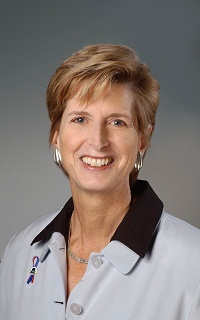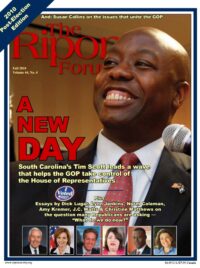 You wouldn’t know it from the rampant partisan dialogue on television, radio, and in print, but today twice as many Americans identify as moderate than as any other ideology. A late October Gallup poll put the breakdown at 29% moderate to 15% conservative and 12% liberal.
You wouldn’t know it from the rampant partisan dialogue on television, radio, and in print, but today twice as many Americans identify as moderate than as any other ideology. A late October Gallup poll put the breakdown at 29% moderate to 15% conservative and 12% liberal.
Unfortunately, the growing moderation across the country has been met with rising extremism in Washington, which is amplified through various media channels and taken – incorrectly – to reflect the mood of the country. As outgoing Indiana Senator Evan Bayh wisely noted in USA Today in September, “Tolerance for any deviation from party orthodoxy is at an all-time low. It used to be that principled compromise was thought to be a good thing. Now it’s viewed as an act of treachery.”
I would argue that this disconnect – between rising extremism inside the beltway and rising centrism outside it – is fueling the public’s utter dissatisfaction with Washington.
I would argue that this disconnect – between rising extremism inside the beltway and rising centrism outside it – is fueling the public’s utter dissatisfaction with Washington.
Thankfully, in this election, many of those who ran on the most extreme rhetoric were not successful. That is good news for all Americans, regardless of whether your party won or lost on November 2nd.
Yet, although some of the most extreme candidates were not victorious, some gridlock in Washington is all but inevitable in 2011. This is both because of the split control of the two houses of Congress, and the reduced Democrat majority in the Senate. With 59 caucusing Democrats, getting to a majority, and a supermajority when necessary, was an easier task. With 53 caucusing Democrats today, fewer issues will get that important 60 vote total.
Unfortunately, we seem to have lost the shared commitment we once had, especially in government. Every issue that is discussed is done so from the political, rather than policy perspective. The approach to any problem is that the answer will mean that someone must lose for someone to win, that it’s a zero-sum game. That’s wrong.
One challenge that demands Congress’s full attention, for example, is energy. The United States has not had a national energy plan in decades, and the need for one has never been greater. With the U.S. Department of Energy estimating a 28% increase in electricity demand by 2035, energy companies have to start making decisions now that will affect ratepayers down the line – and even now is bordering on “too late.”
For the environment and energy, it’s clear that societies cannot thrive if the people don’t have clean air to breath, clean water to drink and open space to access. Similarly, the environment needs a thriving economy to fund the next round of clean technologies or to preserve precious open space. And both the environment and the economy need reliable, affordable energy to thrive. Yet, over the course of the past 20 years, Congress has passed into law only one piece of major environmental legislation: the Brownfields Revitalization Act in 2002.
If we look back 40 years, to the early days of the modern environmental movement, we see that Republicans and Democrats came together to enact the environmental laws America so badly needed. It wasn’t easy – many Republicans were wary of too much regulation while some Democrats thought there couldn’t be enough. But recognizing the urgent need for national action, the parties worked out their differences and put into place the foundation of what still largely defines environmental policy in America today.
Indeed, the vast majority of those laws were passed by a Congress controlled by Democrats and signed into law by Republican presidents. The votes on these measures were rarely close. And our economy experienced robust growth. Today, opposing every environmental regulation seems to have become an article of faith with Republicans. Many have forgotten that the EPA was created by President Richard Nixon in response to rivers that were spontaneously combusting due to the dumping of pollutants into our waterways and people were dying every summer from bad air quality.
We live in a time where political compromise has become a source of ridicule.
Now political polarization infects too much of public policymaking. We live in a time where political compromise has become a source of ridicule. We have forgotten the lessons of our Founding Fathers; men of great principle who – while disagreeing on a host of issues, including even whether or not to secede from Great Britain – realized that they were being called upon to act and, so, came together to forge the compromises that gave us our Declaration of Independence, our Confederation of States and, ultimately, our Constitution.
I am not naïve enough to think that one mid-term election’s result will lead to greater political compromise – much less one mid-term election that so clearly favored one party over the other. But as we once again enter a period of divided government, I sincerely hope the two parties and the two branches of government are committed to putting the needs of ordinary Americans above their own political posturing.
The next two years can be a time of great policy achievement in the United States, if only our political leaders show a willingness to work together. That is how and why our system of divided government was designed, and moderation – not extremism – is what the majority of Americans want today.
It’s about time we started working together.
Christine Todd Whitman is the Founder and Co-Chair of the Republican Leadership Council. Previously, she served as Administrator of the Environmental Protection Agency, and Governor of the State of New Jersey.




